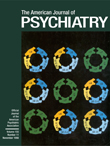To the Editor: Russell and colleagues have made an important contribution to the literature on intellectual functioning in patients with schizophrenia. However, their claim that intellectual decline is “a myth” overstates the case. The first problem is one that the authors partially acknowledge, namely, the biased nature of their study and, hence, the lack of generalizability. Their own data from a
representative population-based cohort
(1) show that the premorbid IQ deficit in children who later develop schizophrenia is one-third of a standard deviation (i.e., around 5 IQ points). Equivalent figures from a later U.K. national cohort suggest that the deficit may be around one-half of a standard deviation (i.e., 8 IQ points)
(2), as do the data from the Swedish conscript cohort
(3). The mean childhood IQ of their current group was 84.1, that is, just over one standard deviation below the mean. Hence, it is
not representative of preschizophrenic children.
The next problem is the lack of control for a period effect, that is, changes in IQ in the population over time. Evidence from the United States shows that children’s intelligence has increased by approximately 3 points per decade since the 1930s
(4, 5), and anecdotal reports from the United Kingdom suggest similar trends in educational attainment. IQ tests standardized at the same time but employed years apart should reveal an increase.
In addition, research with groups with mild and moderate learning disability
(6–9) shows that subjects tested on the WISC and later on the WAIS (or their revisions) consistently show an apparent improvement due to psychometric properties of the scale, separate from the period effect. Hence, the lack of increase (or the slight decrease) in scores reported by Russell et al. masks a larger decrease in IQ over the follow-up period. Such a decrease is suggested by well-controlled, albeit cross-sectional, studies of first–onset cases
-10) in which schizophrenic patients’ cognitive measures are more than one to two standard deviations below the control mean.
Finally, a difficulty arises in the comparison of results from the WISC-R and the WAIS-R. Russell et al. quote correlation coefficients between the two scales, but this is misleading. There would be a perfect correlation between the scales even if one were consistently 10 points higher than the other. We need to know the slope of the regression line and its intercept.So what do we know for sure about IQ and schizophrenia? There is a slight reduction in the average IQ of children and young people who later develop schizophrenia. It is likely that there is a further reduction between childhood and the first onset of the disorder, although truly longitudinal data on this point are sparse. Whether there is a further deterioration in intellect in most cases over the course of the disorder is still an open question.

